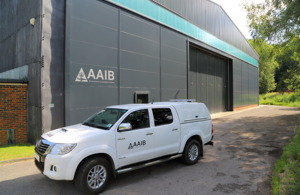New diagnostic centres deliver nearly three quarters of a million tests
- Up to 160 community diagnostic centres by 2025
- 73 centres already open and carrying out 30,000 extra tests a week
- From 6 April the Health and Social Care Levy will begin raising billions to tackle Covid backlogs and reform services
- £36 billion over the next three years will put health and care services on a sustainable footing
From Wednesday 6 April, the first ever dedicated Health and Social Care Levy will begin to raise billions to help tackle Covid backlogs and reform services in the UK.
Over the next three years, a record £36 billion will be invested in the health and social care system to ensure it has the long-term resource it needs while working to reduce patient waiting times and speed up diagnoses.
In England, record levels of health and social care funding will help to deliver up to 160 community diagnostic centres across the country by 2025 – including the 73 that are open already.
These centres have already delivered over 700,000 additional CT, MRI, ultrasound, endoscopy, and ultrasound tests, with around 30,000 tests a week. The latest figures, due next week, are expected to show three quarters of a million additional tests were delivered for patients in need by the end of March.
By the end of May, there will be four more community diagnostic centres open across the country, providing one stop shops for tests and checks closer to people’s homes.
The pandemic put unprecedented pressure on the NHS. The number of people waiting for elective care in England is at 6 million – up from 4.4 million before the pandemic – and this is expected to rise, as up to 10 million people didn’t come forward for treatment during the pandemic.
The necessary, fair and responsible Levy will enable the NHS to offer more appointments, checks, scans and operations and reform the way services are delivered so the NHS is fit for the future, rather than simply plugging the gaps.
In addition to the new community diagnostic centres, record healthcare funding will help deliver:
- 9 million checks, scans, and operations by 2025 – an increase in capacity of a quarter compared with the three years prior to the pandemic.
- New surgical hubs – which will be added to the network of over 40 standalone hubs already operating across the country, helping to reduce waits for procedures such as cataract surgery or hip replacements.
- Expansion of operating theatres and diagnostic centres for cancer.
Health and Social Care Secretary Sajid Javid said:
From Wednesday, the Health and Social Care Levy will raise billions to improve services that really matter to the public, and help us recover and reform as we begin to live with Covid.
This is vital funding for the NHS that will clear the Covid backlogs, helping to reduce waiting times, deliver millions more checks, scans and operations, and reform the adult social care system.
This critical investment in our nation’s future will be paid for by those with the broadest shoulders, whilst those on low and middle incomes are protected.
The Levy will also reform our social care system, backed by £5.4 billion. It will end the cruel lottery of social care costs, provide a limit to the cost of care for everyone in the adult social care system for the first time, and significantly increase state support. It will also invest £500 million into the social care workforce, the details of which are expected this week.
The reform will ensure that people receive the care they need no matter their background and that they will be supported to have better choice, control and independence over their care.
To ensure everyone contributes fairly, all working adults, including those over the state pension age from April 2023, will pay the Levy and the rates of dividend tax will also increase by 1.25% to help fund this package.
Chancellor of the Exchequer, Rishi Sunak said:
Investing in health and social care is a top priority for this government, and it is right that we fund that investment in a responsible and sustainable way.
The money raised by the Levy will enable us to deliver improved services for patients, cut waiting times and make social care funding more fair – all part of a better system for Health and Social Care.
The Levy will initially be based on National Insurance contributions (NICs) and from 2023 will be legislatively separate.
Every individual will contribute according to their means. Those who earn more pay more, with the highest 15% of people paying over half the revenues.
Low earners will be shielded from the Levy following action taken by the Chancellor in the Spring Statement last month. From July, the level at which people pay National Insurance on their income will rise to £12,570, saving a typical employee over £330 a year. The change does not affect the funding available to Health and Social Care.
This means that the NHS gets the vital funding it needs to clear the Covid backlogs but it’s paid for by those with the broadest shoulders, whilst those on low and middle incomes are protected.
Recognising this year will be tough on household budgets, a £9.1 billion package will see most households receive £350 to help with rising energy bills, including a £150 cash grant via the Council Tax system in April, and a £200 reduction in energy bills in October with the cost smoothed over 5 years.
Before Covid, no one waited longer than 18 months for elective treatment, but now 106,000 people are. Patients will be offered more choice and information on average waiting times at the point of referral. Those waiting the longest will be contacted by the NHS to be given the opportunity to change provider to reduce their wait. The NHS will support patients with travel costs if feasible and will engage with the independent sector so all options are available. By the end of this year, all patients that have been waiting for 18 months or more will be contacted to discuss the choices they have about changing provider.
The investment will help to fund the NHS’ Covid Backlog Recovery Plan and deliver on ensuring that:
- Around 30% more elective activity is delivered by 2024/25 compared to before the pandemic.
- Waits of longer than a year for elective care are eliminated by March 2025, and waits of over 18 months by April 2023.
- By July 2022, no one will wait longer than two years for an elective treatment.
- By March 2024, three quarters of patients who have been urgently referred by their GP for suspected cancer will be diagnosed, or have cancer ruled out within 28 days.
- The number of people waiting more than 62 days from an urgent cancer referral will return back to pre-pandemic levels by March 2023.
The funding raised through the Levy is in addition to the historic settlement for the NHS in 2018, which will see its budget rise by £33.9 billion a year by 2023/24.



